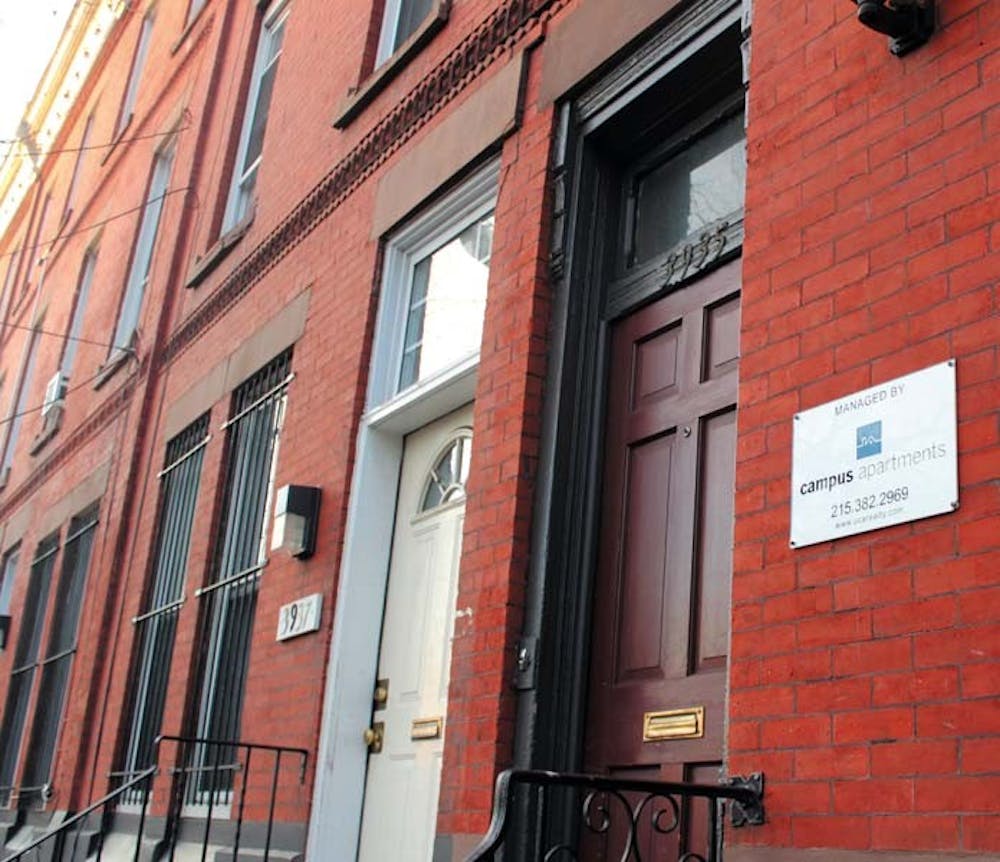Six Penn students filed a lawsuit against the Trustees of the University of Pennsylvania, Inc. due to “utterly reprehensible [housing] conditions” they experienced during the 2011-2012 academic year.
During that year, the plaintiffs — Wharton junior Amanda Coe, College junior Zachary Opperman, College junior Andrew Green, College senior Timothy Suzor, College junior Doron Roberts-Kedes and College junior Lucy Abbot — resided at 3935 Baltimore Ave.
The property is owned by the University, but is managed by Campus Apartments, LLC and its landlord is University City Associates — the University’s real estate subsidiary.
In the documents the plaintiffs submitted to the court in the Dec. 7 lawsuit, they alleged that their house was afflicted with various problems including leaks, rodents, mold and the collapse of their third floor bathroom ceiling.
They further alleged that they “[spent their] year living in utterly reprehensible conditions without timely or effective remedy on behalf of the Landlord” and are now seeking legal recourse.
Their lawsuit is for $39,645 in damages against the defendant — $35,240 because of rent paid during “poor living conditions” and $4,405 due to an unreturned security deposit.
According to their statement, “the quality of life at the Premises deteriorated, despite multiple, significant attempts to contact [Campus Apartments] for assistance.”
According to the complaint, this culminated in one incident on March 20, 2012, when the house incurred multiple damages that the plaintiffs claim are attributable to a lack of maintenance at the fault of Campus Apartments.
Related
11/27/12: Campus Apartments looks back on West Philadelphia roots
1/16/13: UA-GAPSA Legal Services program will soon address housing issues
On that date, they assert that a light fixture in the living room filled with water and then shattered, causing water to pour from the ceiling. Campus Apartments came to the conclusion that the damages were caused by an overflowing toilet at the fault of the tenants — an assertion that the plaintiffs contest.
According to the Resident Ledger submitted with their evidence, the plaintiffs were charged for $2,575.70 on April 1, $3,500 on April 10 and $199.80 on April 16 due to services provided to them because of the March 20 incident.
The plaintiffs declined to comment on the case on the advice of legal counsel.
Both the University and UCA declined to comment on the case. Campus Apartments did not respond to multiple requests for an interview.
The case — of which the University was served notice on Dec. 26 — could be decided in several different ways.
“If the court reaches the merits of the case, it will have to decide whether the tenants breached the lease by causing a water leak that filled a ceiling light fixture,” Practice Professor of Law and Director of Clinical Programs at the Law School Louis Rulli, who is not affiliated with the case, said in an email.
But if the leak resulted from the landlord’s failure to properly maintain the premises or from ordinary wear and tear, then the tenants should have these charges removed and their security deposit returned to them, he added.
However, the court may face other issues before it decides on the facts of the case.
“First, there is likely to be a question as to whether the proper parties are before the court,” Rulli said. “The lease lists [UCA] as the landlord, but the tenants sued the Trustees of the University of Pennsylvania, presumably because Penn is listed in public records as the legal owner of the building containing the leased premises.”
If this challenge is brought, he added, the court would have to determine the legal relationship between UCA and the University — specifically, whether UCA should be the defendant in the lawsuit rather than the Trustees of the University of Pennsylvania.
Rulli further noted that there might be questions regarding the jurisdiction of the court.
The Municipal Court’s jurisdictional limit in small claims matters is $12,000 and amounts above that are waived. Since the plaintiffs are suing for $39,645, the defendants could argue that the maximum amount the court could award is $12,000.
However, in landlord-tenant matters, amounts above the jurisdictional limit are not waived, which is an argument Rulli said the tenants could make.
A hearing date has been set for Jan. 28.
This article has been updated to reflect that Zachary Opperman and Andrew Green are both College juniors.



